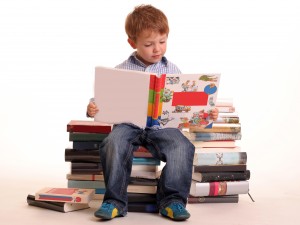
Whether it’s because of a learning challenge, a particular learning style, or just a matter of taste, some kids have a hard time getting into reading. As parents and teachers, we want our kids to love books, and to develop literacy and communication skills, and seeing a young thinker struggle can be disheartening. However, reluctant readers are also of concern because they’re potentially missing out on opportunities to sharpen their critical thinking skills too.
So how do you get a kid who isn’t comfortable with reading to explore philosophical questions and become a big thinker? Here are some thoughts:
- It’s surprising how the right big question, asked in an engaging manner, and discussed in a safe learning environment, will inspire a young learner to participate. We’ve seen students who were still in the early stages of learning English as a second language whip out dictionaries, play charades and scribble down pictures, just to get their ideas across. If it’s a compelling enough question, it may just spark enough interest to get a reluctant reader to try.
- Big questions don’t have to be approached through one particular type of material. Poems, songs, comic books, advertisements, and even wacky tabloid articles (UFO sightings, anyone?) are fair game, and make for some very entertaining philosophical discussions. A reluctant writer may be enticed to express their own views by creating texts in these media as well.
- Digital sources count too! Young readers who aren’t comfortable with printed material can still be enticed to use a tablet or smart phone. Big questions can be explored through interactive eBooks, or even games and apps. Words are words, and ideas are ideas, whether they’re accessed through a book, or on a screen.
For most reluctant readers, success in literacy hinges on finding material that’s both interesting and accessible. Switching up the subject or the format, along with broadening the definition of a “good reader” are key. The big questions presented in children’s philosophy may just be the gentle nudge a reluctant reader needs.

